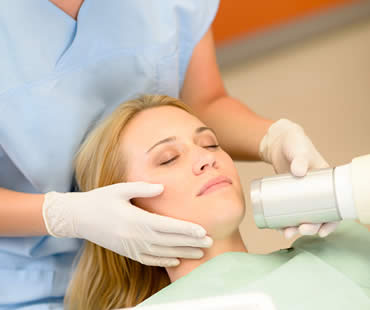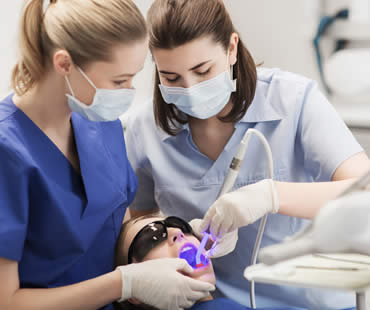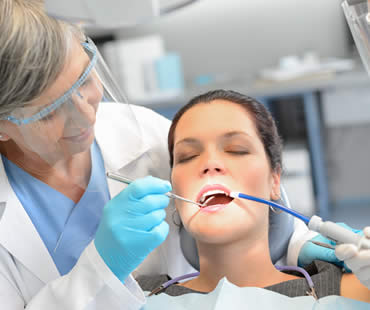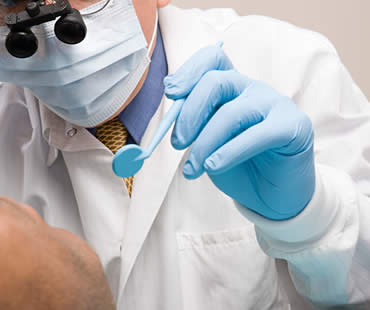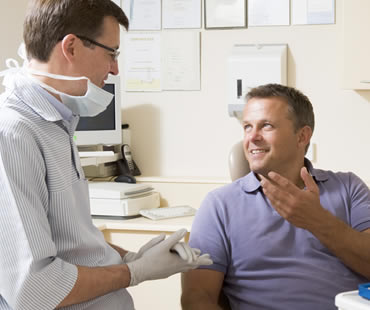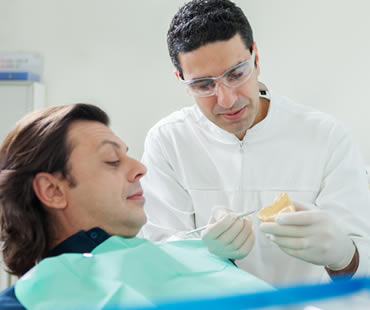Many types of cosmetic dentistry procedures such as crowns, bridges, tooth implants, or other invasive procedures require some kind of anesthesia in order to be performed in comfort for the patient. Even a procedure like porcelain dental veneers can be aided by the addition of some kind of sedation dentistry, especially if the patient is experiencing anxiety or fear regarding the treatment. For any patient seeking a more relaxed cosmetic dental experience, sedation dentistry presents several options.
Inhaled sedation, or nitrous oxide, is more commonly known as “laughing gas.” It is inhaled via a mask and is controlled by your dentist. It is a light sedation, and allows you to remain completely responsive and compliant to instruction. Nitrous oxide sedation wears off quickly; because of this, you may be able to drive yourself home after your treatment.
Conscious oral sedation reduces your anxiety while still allowing for responsiveness to requests and directions. Oral sedatives are typically prescribed in pill form, and can be taken up to an hour before your dental procedure. Some dentists believe that taking a mild oral sedative the night before treatment can alleviate anxiety and ensure proper rest. You should not drive yourself home if you have taken an oral sedative for your dental treatment. You will not be fully alert.
IV sedation is also known as “sleep dentistry.” It provides the most relaxed dental experience, allowing you to be deeply sedated while never completely unconscious. A natural effect of the drugs is full or partial memory loss of the time during its use, so you may have no memories of your procedure. You should never drive following IV sedation, and you may not be fully alert for several hours. Plan to go home, rest, and sleep.
Your cosmetic dentist wants you to be comfortable throughout your dental therapy and will know which sedation dentistry option is right for your particular cosmetic dentistry procedure. Talk to your cosmetic dentist today about any concerns you have regarding your treatment so that you may have the most positive, pain and anxiety-free experience possible.
If you live in the Weymouth area contact us today








